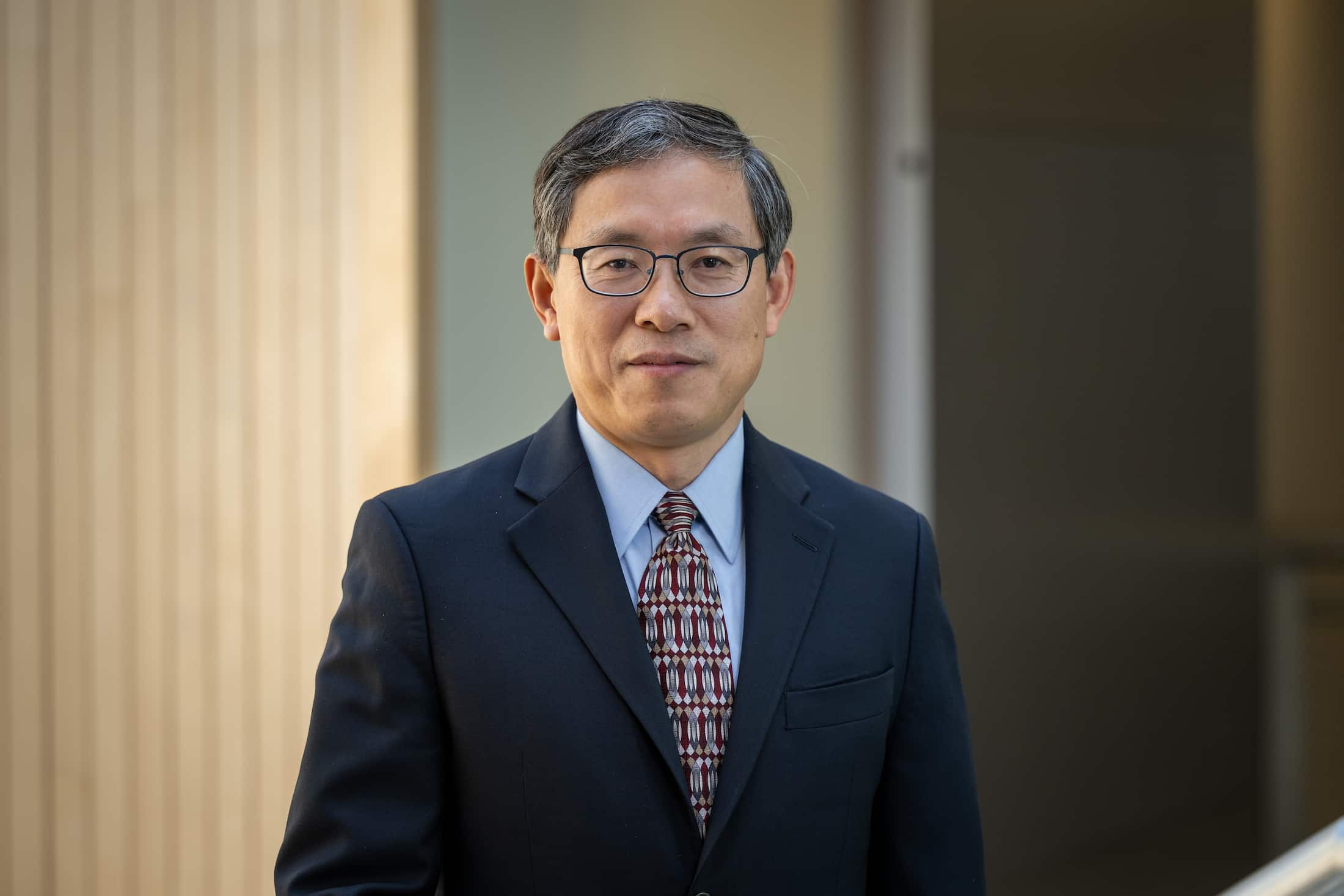
Xiaodong Sun named Fellow of the American Nuclear Society
Professor Sun was recognized for significant contributions to research in reactor thermal hydraulics and for those as an educator and mentor of nuclear engineering students and researchers.

Professor Sun was recognized for significant contributions to research in reactor thermal hydraulics and for those as an educator and mentor of nuclear engineering students and researchers.
Xiaodong Sun, a professor within the U-M Department of Nuclear Engineering and Radiological Sciences (NERS), has been named a Fellow of the American Nuclear Society (ANS).
The honored membership grade of Fellow is awarded to ANS members for outstanding accomplishment in any one of the areas of nuclear science and engineering. The honor of receiving the highest membership grade of the Society is reserved for senior members of good reputation who have compiled a professional record of experience marked by significant contribution to the advancement of one or more of the various disciplines served by the society.
Sun was recognized by the ANS for his significant contributions to research in two-phase flow and heat transfer, interfacial area transport modeling and experimentation, thermal-hydraulic phenomena in advanced reactors, and high-temperature compact heat exchangers to improve modeling capabilities and support reactor development, and those as an educator and mentor of nuclear engineering students and researchers.
“It is a great honor to become an ANS Fellow. I am very humbled by this recognition. I would like to take this opportunity to thank my former and current students, postdocs, research scientist, and collaborators. I look forward to continuing to perform research with my students and colleagues to support advanced reactor development and deployment.”
Prof. Xiaodong Sun
Sun received his PhD in nuclear engineering and Master’s degree in mechanical engineering from Purdue University in 2001. He received a Master’s degree in nuclear engineering in 1996 and Bachelor’s degree in thermal engineering in 1993 from Shanghai Jiao Tong University in China.
At NERS, Sun is the Undergraduate Program Chair and the director of the Thermal Hydraulics Laboratory. The Thermal Hydraulics Laboratory carries out separate-effect and integral-effects tests in reactor thermal hydraulics to support the improvement of light water reactors (LWRs) and the development of advanced non-LWR reactors, including molten salt reactors (MSRs) and high-temperature gas-cooled reactors (HTGRs). It has established a number of high-temperature test facilities, including molten salt and helium test facilities.
Sun’s research interests include thermal-hydraulics and reactor safety, two-phase flow experimentation and modeling, interfacial structure characterization, and more. Sun’s group is investigating post-critical heat flux (CHF) heat transfer at high-pressure and high-flow conditions for LWRs in collaboration with the U.S. Nuclear Regulatory Commission and developing an extensive two-phase flow experimental database collaborating with Virginia Tech and the Naval Nuclear Laboratory. Under the support of the U.S. Department of Energy’s Office of Nuclear Energy, Sun’s group is also researching molten salt heat transfer and natural circulation flow for MSRs, studying graphite-moisture reaction phenomena during postulated water/steam ingress accidents in HTGRs, developing a compact high-temperature steam generator for a horizontally-oriented compact HTGR being designed by a team led by MIT, and supporting experimental vehicle development for the Versatile Test Reactor.